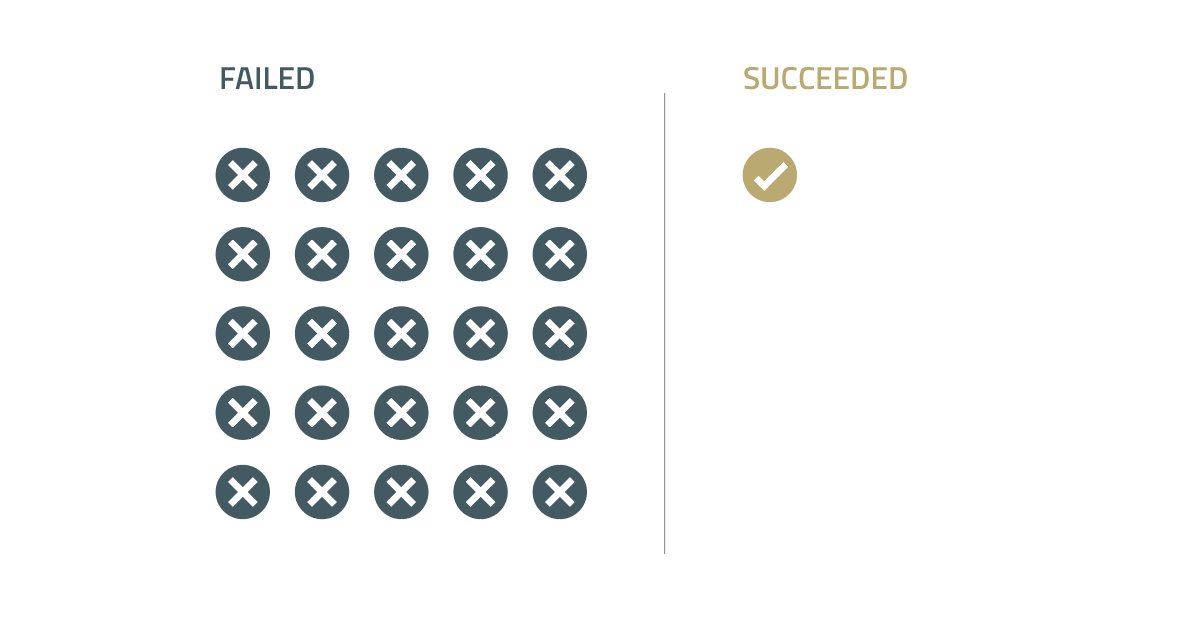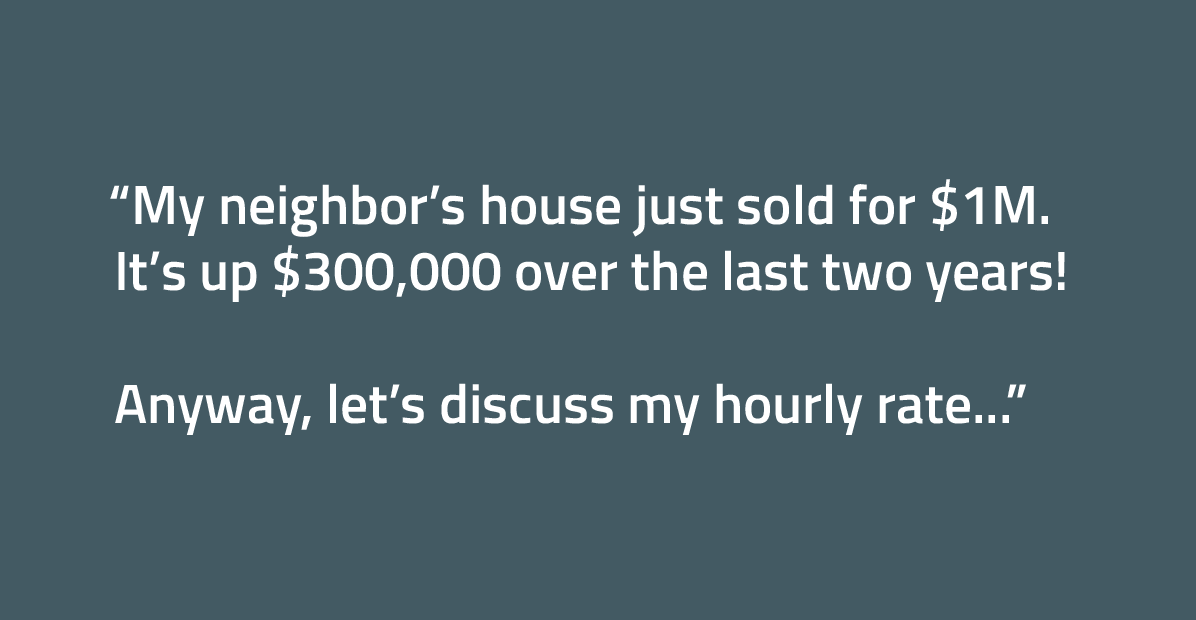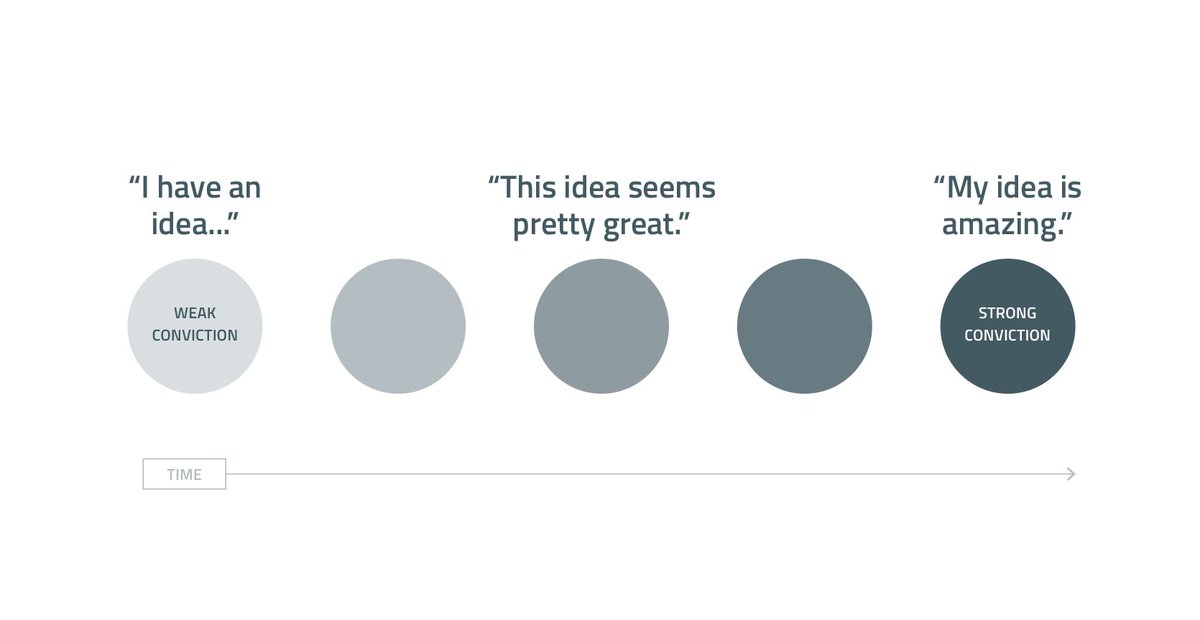Cognitive Bias In Business
3 Lessons In 3 Tweets
[ THREAD ]
Let& #39;s go https://abs.twimg.com/emoji/v2/... draggable="false" alt="👇" title="Rückhand Zeigefinger nach unten" aria-label="Emoji: Rückhand Zeigefinger nach unten">
https://abs.twimg.com/emoji/v2/... draggable="false" alt="👇" title="Rückhand Zeigefinger nach unten" aria-label="Emoji: Rückhand Zeigefinger nach unten">
3 Lessons In 3 Tweets
[ THREAD ]
Let& #39;s go
1:
Survivorship Bias
“Roger Federer eats five egg yolks and does alternate nostril breathing every morning.”
We see headlines like that constantly. And they are examples of survivorship bias.
Survivorship Bias
“Roger Federer eats five egg yolks and does alternate nostril breathing every morning.”
We see headlines like that constantly. And they are examples of survivorship bias.
Survivorship bias means we look only at the people or strategies that succeeded.
We conclude that what they did works...
And we completely ignore all those who adopted that exact strategy but failed.
We conclude that what they did works...
And we completely ignore all those who adopted that exact strategy but failed.
To assess the usefulness of Roger& #39;s approach, we& #39;d want to know:
1. How many tennis pros did the exact same thing
2. How many of those succeeded
3. How many of those failed
That would give us a good sense of the *probability* of success. Which is what we really need to know.
1. How many tennis pros did the exact same thing
2. How many of those succeeded
3. How many of those failed
That would give us a good sense of the *probability* of success. Which is what we really need to know.
An example from business:
“Steve Jobs publicly berated employees. He was super successful. So I should copy his management style.”
What& #39;s the problem with this logic?
It ignores the total number of people who publicly berate employees and get nowhere.
“Steve Jobs publicly berated employees. He was super successful. So I should copy his management style.”
What& #39;s the problem with this logic?
It ignores the total number of people who publicly berate employees and get nowhere.
Which brings us to the core of survivorship bias.
It’s possible that many survivors succeed *in spite of* their approach. Not *because* of it.
What to do instead:
- Collect data on total winners/losers
- Pursue the highest probability strategy
It’s possible that many survivors succeed *in spite of* their approach. Not *because* of it.
What to do instead:
- Collect data on total winners/losers
- Pursue the highest probability strategy
2:
Anchoring
An anchor is a thought that influences people toward your preferred outcome.
Anchoring
An anchor is a thought that influences people toward your preferred outcome.
When most of us go out to eat, we might be on the fence about getting appetizers...
But then the server asks, “What appetizers can I get going for you?”
And we walk out paying twice what we thought we were going to pay...
But then the server asks, “What appetizers can I get going for you?”
And we walk out paying twice what we thought we were going to pay...
Notice what the server did there.
They asked the question in a way that ASSUMES we would be getting an appetizer.
They anchored us.
They asked the question in a way that ASSUMES we would be getting an appetizer.
They anchored us.
Use this to your advantage in negotiations.
If you tell me some clients pay you $500 per hour...
I’m more likely to agree to a higher rate than if you tell me some pay you $50 per hour.
The initial number becomes a mental anchor that sticks with me in a powerful way.
If you tell me some clients pay you $500 per hour...
I’m more likely to agree to a higher rate than if you tell me some pay you $50 per hour.
The initial number becomes a mental anchor that sticks with me in a powerful way.
But here’s the fascinating thing...
You can mention a high number from an entirely different situation.
You might mention a friend of yours who charges $500/hour for legal advice.
Different situation. But the anchor sticks.
You can mention a high number from an entirely different situation.
You might mention a friend of yours who charges $500/hour for legal advice.
Different situation. But the anchor sticks.
This is why you should always be the first person to raise numbers.
Be. The. First. To. Mention. Numbers.
Be ethical. But use this to your advantage.
And avoid getting anchored yourself!
Be. The. First. To. Mention. Numbers.
Be ethical. But use this to your advantage.
And avoid getting anchored yourself!
3:
Confirmation Bias
No bias is responsible for more business failures than confirmation bias.
When under its spell, we prefer information that confirms our beliefs.
And we simultaneously discount information that contradicts our beliefs.
Confirmation Bias
No bias is responsible for more business failures than confirmation bias.
When under its spell, we prefer information that confirms our beliefs.
And we simultaneously discount information that contradicts our beliefs.
This bias is the reason I’ve talked about the need to be careful with “ideas.”
People get an idea for a business.
And they start asking their friends if it& #39;s any good...
People get an idea for a business.
And they start asking their friends if it& #39;s any good...
Most friends, trying to be nice people, tell you they can see the potential.
Some even say the idea is brilliant.
You filter out negative signal. And admit only positive signal.
Before long, you are convinced the idea is genius.
You are also a prisoner to confirmation bias.
Some even say the idea is brilliant.
You filter out negative signal. And admit only positive signal.
Before long, you are convinced the idea is genius.
You are also a prisoner to confirmation bias.
How to avoid this?
1. Encourage debate
2. Play devil’s advocate
3. Ask neutral (vs. loaded) questions
1. Encourage debate
2. Play devil’s advocate
3. Ask neutral (vs. loaded) questions
Summary:
Business requires good decisions. Cognitive bias is your biggest obstacle to making them.
The Big 3 Biases:
1. Survivorship Bias
2. Anchoring
3. Confirmation Bias
Awareness of them is your best defense.
Business requires good decisions. Cognitive bias is your biggest obstacle to making them.
The Big 3 Biases:
1. Survivorship Bias
2. Anchoring
3. Confirmation Bias
Awareness of them is your best defense.

 Read on Twitter
Read on Twitter




